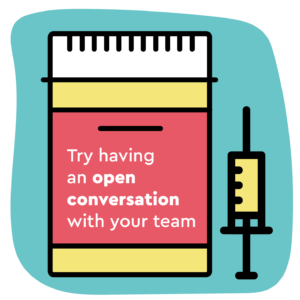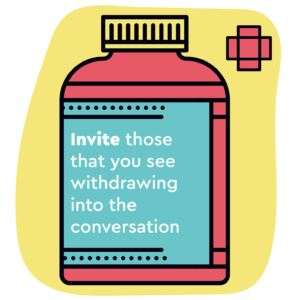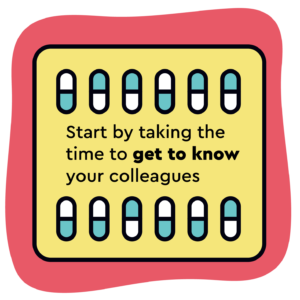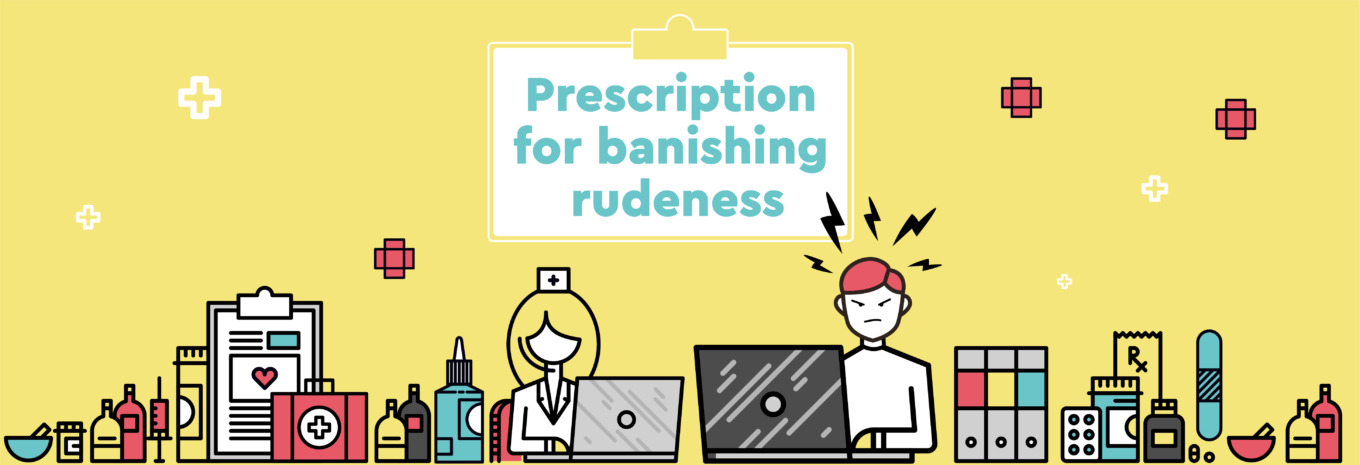In his 2019 Ted Talk ‘When rudeness in teams turns deadly’, Chris Turner, an emergency medicine consultant, uses his insight and experience to explain the impact incivility can have.
Chris shows us the ways in which tensions can escalate quickly and quite literally put lives at risk. Competent teams are deeply impacted by the way we treat each other, which is a key component in good performance.
He goes on to humorously highlight how rudeness also impacts the wider work environment and how being more aware of the human psyche* can improve connection, promote mutual respect and boost productivity.
As he rightly says, “this stuff counts”!
Let’s take a closer look at some of the causes, symptoms and prescriptions needed to treat common mistakes, mishaps and miscommunications in the workplace…
DIAGNOSIS: Poor mental bandwidth

Chris explains that people can normally manage 5-7 things daily. Often 3-4 of those are needs, pressures or tasks which are already being dealt with before the person even gets to work – car, bills, kids, etc.
SYMPTOMS: Our bandwidth changes throughout the day. Incivility decreases our bandwidth by 61%, naturally making tasks more difficult to cope with.
PRESCRIPTION: Building trust leads to higher motivation and helpfulness, even when you feel at capacity. A strong team is built on a foundation of trust, honesty and authenticity. Try having an open conversation with your team about what changes they’d like to see, then earn their trust by acting on what’s achievable and being honest about what’s not and why.
DIAGNOSIS: Carrying excess weight
When someone is mild to moderately rude, the recipient is initially made to feel small, belittled, humiliated. Less of a person in some way. They may retreat and question what happened.
They haul around this excess baggage, burdened and distracted by the interaction. After a period of reflection come thoughts like ‘how dare you treat me like that!’ and anger is the lasting emotion.
SYMPTOMS: This tends to leave a lingering feeling of animosity, resulting in poor working relationships and ultimately affecting productivity, autonomy and sense of belonging.
PRESCRIPTION: Kindness creates a positive atmosphere. Those that feel valued and heard at work can become strong leaders, and team members will feel motivated to show up positively every day. Next time you see someone withdrawing or being left out, invite them into the conversation and ask for their opinion.
DIAGNOSIS: Increased viral load
According to Chris, when someone has been rude to a colleague or friend in an open environment, or has experienced rudeness, it’s likely that this is how they’ll treat the next person, and the cycle continues both in and outside of work.
SYMPTOMS: This contagion spreads and the mood and atmosphere shifts, becoming increasingly sombre and fearful, making those that have been affected less likely to help others and in turn hindering their performance.
PRESCRIPTION: Positivity is contagious too, so spread it! While process is important, teams perform better with an underpinning of respect and through positive relationships. Being a friendly, approachable and compassionate leader will change your negative, rude, unengaged army of ‘cells’ into a positive team of supportive people. Start by taking the time to get to know your colleagues – what does their world outside of work look like?
Roundup of remedies
All of the scenarios explored have a direct impact on team performance – something no organisation should risk. Through kindness and respect, we can enable and empower teams and individuals to work to their highest potential, boost productivity, promote a positive work environment and achieve better results.
* The psyche being the centre of thought, feeling, and motivation, consciously and unconsciously directing the body’s reactions to its social and physical environment. The mind, soul, or spirit, as opposed to the body.
Reference:
When rudeness in teams turns deadly | Chris Turner | TEDxExeter
Related materials:
Why being respectful to your coworkers is good for business | Christine Porath | Tedtalk
















